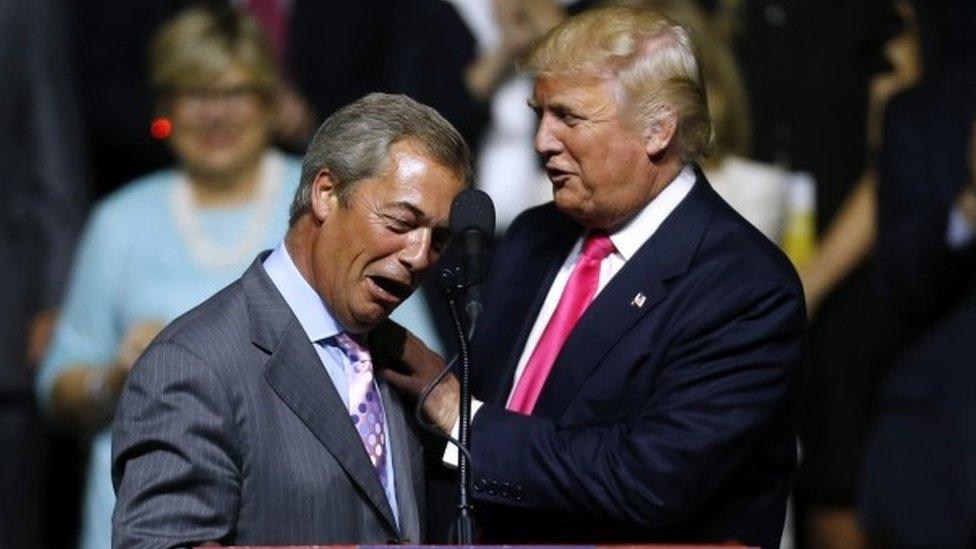Nigel Farage attacks response to Trump ambassador tweet
- Published
- comments
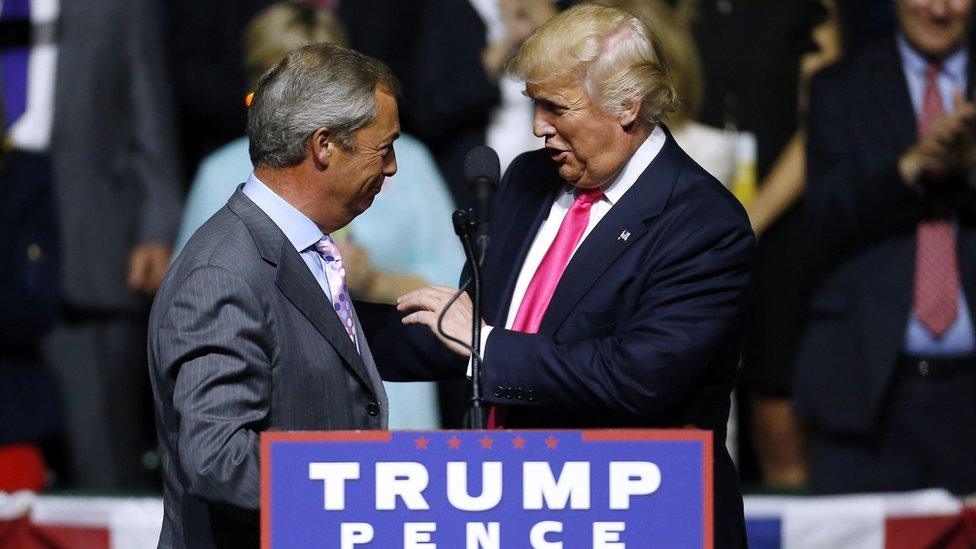
Nigel Farage spoke in support of Mr Trump at an election rally in the US during the campaign
Nigel Farage has accused Downing Street of putting its dislike of him ahead of the national interest after No 10 dismissed Donald Trump's comment that he could be a "great" ambassador.
The UKIP leader said No 10 needed to accept "the world has changed", adding he was "in a good position, with the president-elect's support, to help".
Mr Trump had tweeted that "many people" would like to see Mr Farage in the role and he would do a "great job".
But No 10 said there was "no vacancy".
The role is currently held by Sir Kim Darroch and a spokesman for Prime Minister Theresa May added that he was "an excellent ambassador who only took up post in January and traditionally they serve four years or even longer".
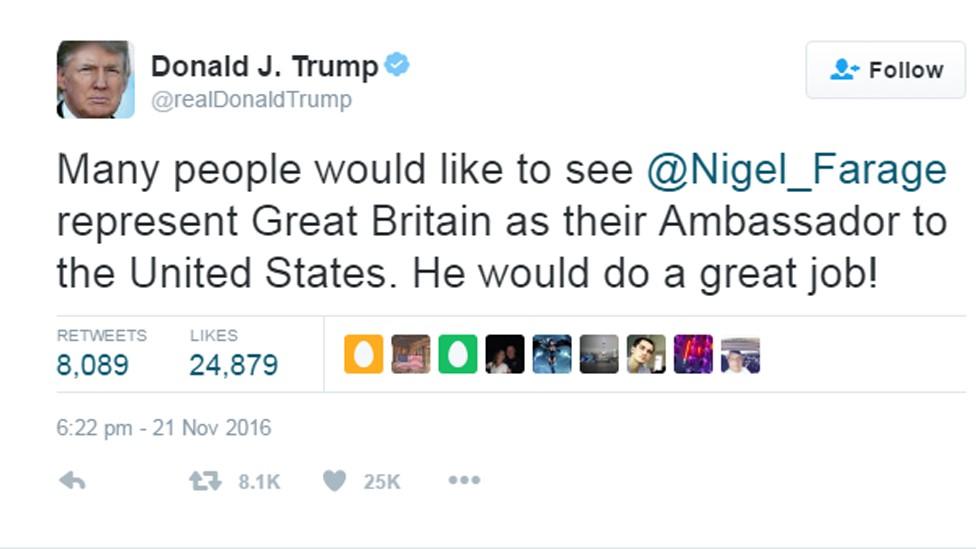
Mr Farage, who is currently UKIP interim leader, was the first British politician to meet Mr Trump after his victory in the US presidential elections and spoke in support of him at an election rally.
Writing for Breitbart website, external, whose former executive chairman Stephen Bannon has been appointed Mr Trump's chief strategist, he said: "At every stage I am greeted by negative comments coming out of Downing Street.
"The dislike of me, UKIP, and the referendum result is more important to them than what could be good for our country."
Mr Farage said politicians who had been "openly abusive about Trump now pretend to be his friend".
He wrote: "It is career politics at its worst and it is now getting in the way of the national interest.
"I have said since the now famous photograph with Donald Trump 10 days ago that I would do anything to help our national interest and to help cement ties with the incoming Anglophile administration.
"I have known several of the Trump team for years and I am in a good position with the president-elect's support to help. The world has changed and it's time that Downing Street did too."

Throwing out the diplomatic rule book
By Jon Sopel, BBC North America editor
By any measure this is an extraordinary intervention.
The future head of state of one nation telling another country who they should appoint as their ambassador is unusual enough; when it is two nations that are meant to share a special relationship it is a breach of nearly every rule of diplomatic protocol.
At a stroke it puts tension into the Trump/ May relationship before they have even met.
It also leaves the current holder of the post, Sir Kim Darroch, in an awkward position as he seeks to forge closer contacts with the new administration.
In Downing Street and diplomatic circles there is consternation.
But for Nigel Farage - who has always delighted in tweaking the tail of the Conservative Party - there will be amusement, and it seems in the future leader of the most powerful nation on earth he has a willing partner.
Since Mr Trump's election there has been an anticipation that the rule book might not be followed. Few anticipated this though.

The president-elect's meeting with Mr Farage was seen by some as a snub to Mrs May, who will not meet Mr Trump until early next year.
Mr Trump has spoken to the prime minister by phone and there have been other contacts between British ministers and representatives of the incoming administration.
Mr Farage said he was flattered by Mr Trump's tweet, which he said came as a "bolt out of the blue"
The Downing Street spokesman said the UK already had "an incredibly strong and enduring relationship with America" and the government would build on that once Mr Trump takes office.
"As a basic principle we appoint our ambassadors," he added.
Foreign Secretary Boris Johnson reiterated that there was "no vacancy".
Speaking in the House of Commons, he said: "We have a first-rate ambassador in Washington doing a very good job of relating both with the present administration and the administration to be and there is no vacancy for that position."
Sir Christopher Meyer, the former UK ambassador to the US, told the BBC: "We the UK must have the sovereign right to decide who we want as ambassador in Washington and I think it's completely unprecedented, certainly in public, for a president-elect to suggest who he would like to see as British ambassador in Washington.
"I think we can hear his suggestion and then we reject it politely but firmly."
Liberal Democrat leader Tim Farron tweeted, external that the suggestion of Mr Farage as UK ambassador to the US was a "frankly stupid idea".
He added: "I have more diplomacy in my little finger. But what's more worrying is the axing of TPP."
Mr Farron was referring to Mr Trump's announcement that he would quit the Trans-Pacific Partnership trade deal on his first day in office.

Factfile: Darroch v Farage
Background: Sir Kim was born in County Durham in April 1954; Mr Farage was born Kent in April 1964.
Education: Sir Kim studied zoology at Durham University; Mr Farage left the fee-paying Dulwich College at 18, and decided not to go to university.
Career: Before Sir Kim was appointed ambassador to the US in January 2016, his former roles included national security adviser to David Cameron, and permanent representative to the European Union. Mr Farage worked as a commodities trader before entering politics, becoming a founder member of UKIP in 1993.
What they have said about each other: A leaked memo obtained by the Sunday Times, reportedly written by Sir Kim, suggested he believed British influence - "if pitched right" - could shape President-elect Trump's thinking. In contrast Mr Farage has criticised Sir Kim in the past, calling him an "arch-Europhile".

- Published22 November 2016
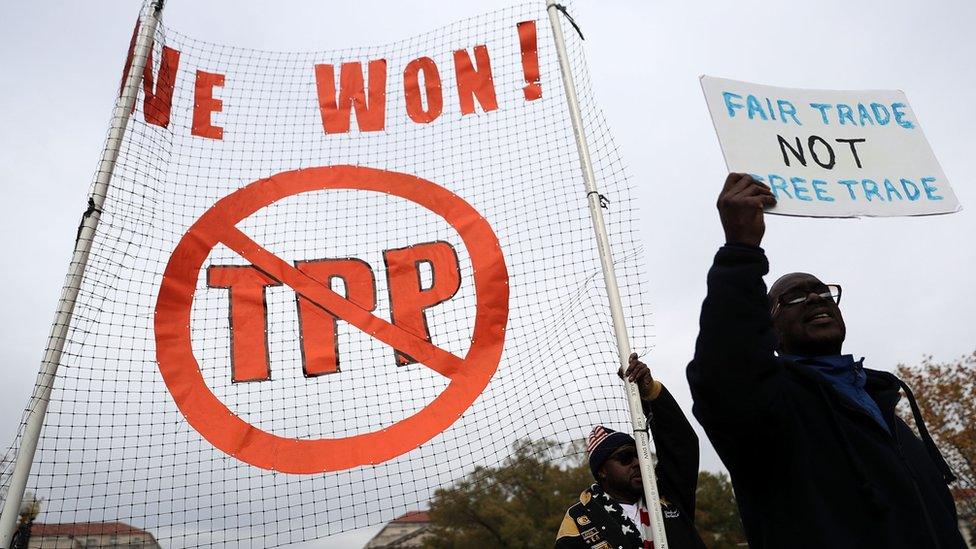
- Published22 November 2016
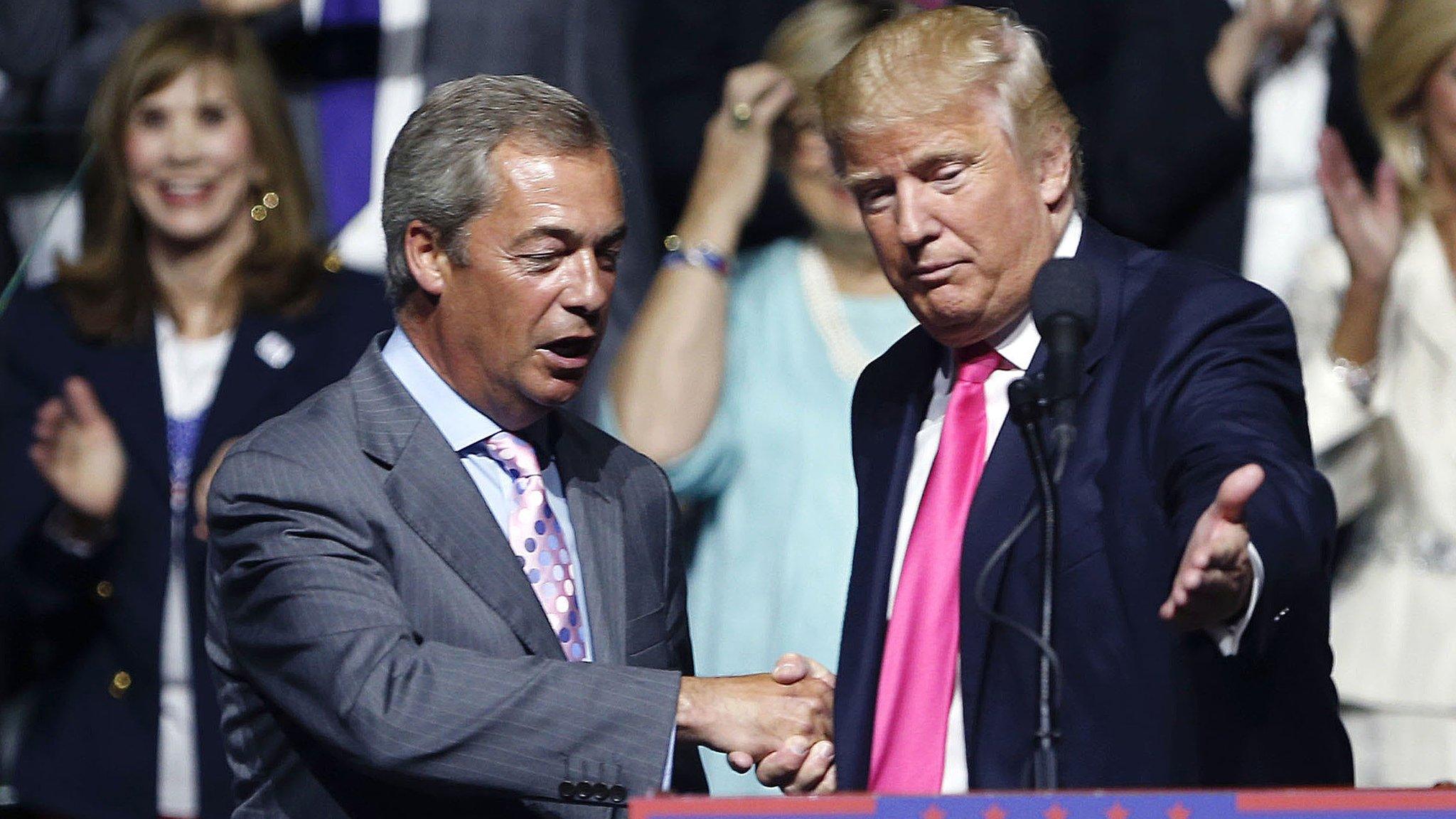
- Published13 November 2016
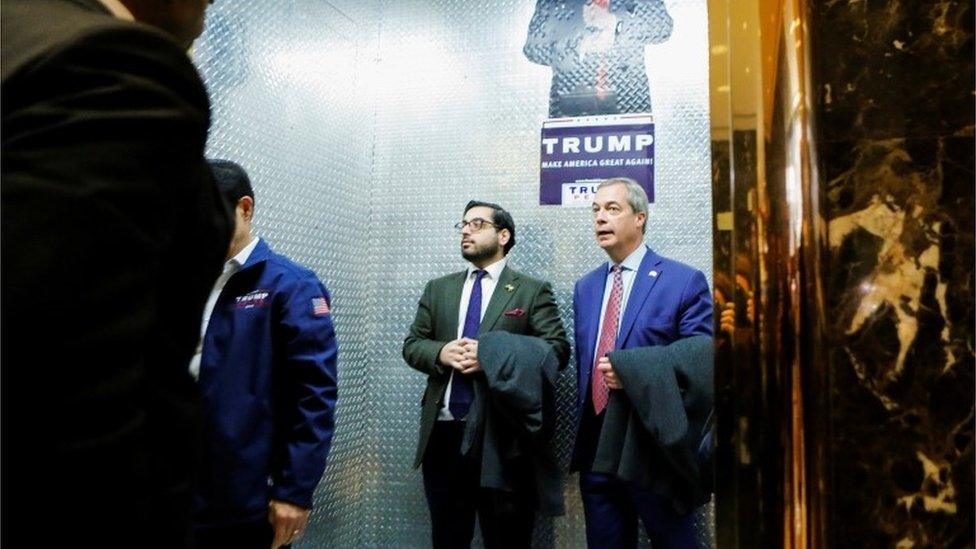
- Published10 November 2016
